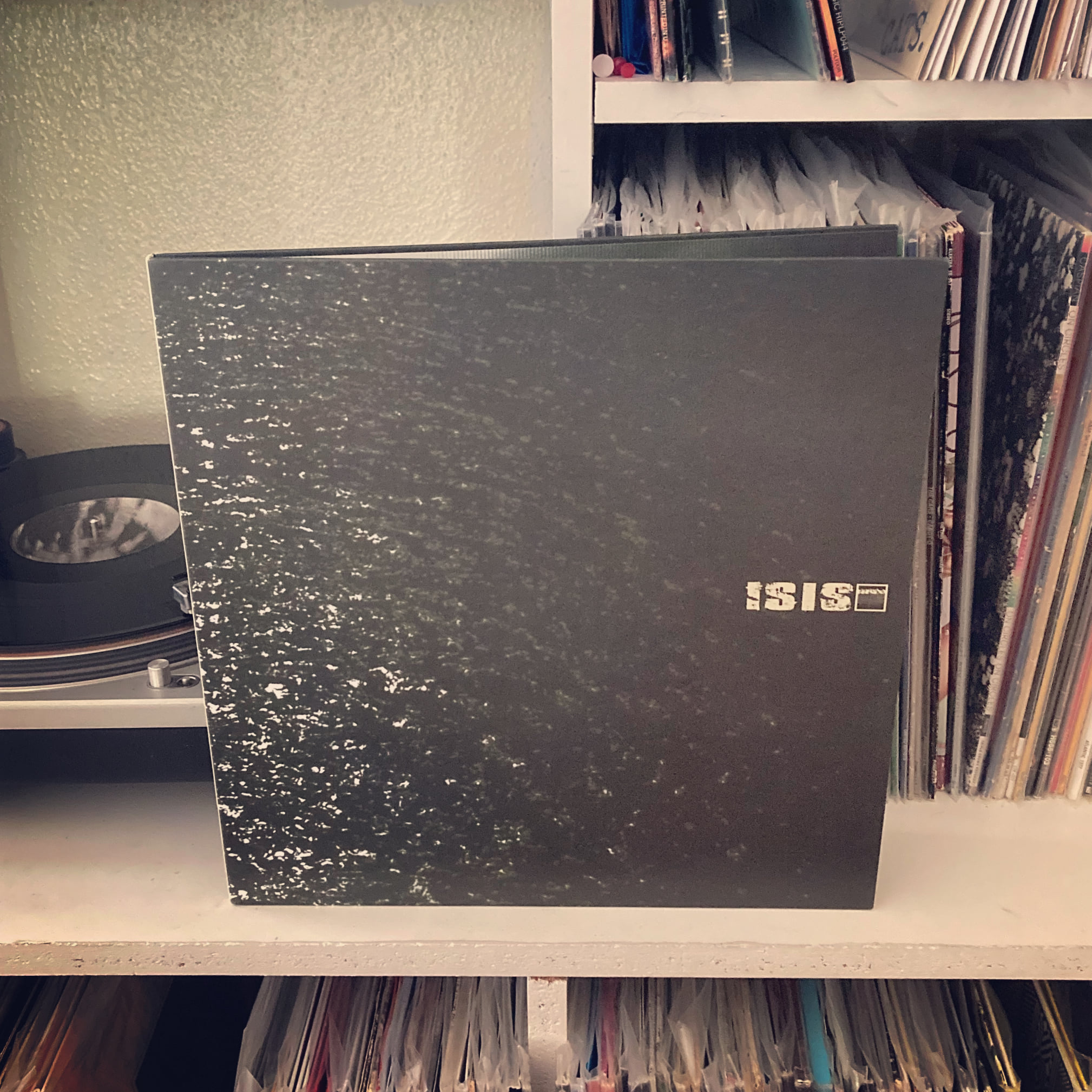 For the last six years, post metal heroes ISIS have been one of my favorite bands. From the first time I heard the crushing, glacial riffs of Panopticon, I was smitten. As I became more familiar with their other works, I regarded that album as a watershed moment: a turning point that would set the direction for the rest of their career, as well as direction for an entire direction of metallurigists.
For the last six years, post metal heroes ISIS have been one of my favorite bands. From the first time I heard the crushing, glacial riffs of Panopticon, I was smitten. As I became more familiar with their other works, I regarded that album as a watershed moment: a turning point that would set the direction for the rest of their career, as well as direction for an entire direction of metallurigists.
A few weeks ago, I found that album’s predecessor, Oceanic, for the lowest price I’d ever seen it, so I ordered it without being totally familiar with it. And now, I must recant the narrative I’ve drawn around their discography. While Panopticon may have perfected the post-rock tinged sludge metal that they are celebrated for, Oceanic pioneered it.With Panopticon as my introduction, it’s always struck me as the quintessential ISIS record. I’ve read some articles about the earlier two LPs and understood them to be qualitatively inferior in some way: respectable albums, but too tied to the nu-metal that was so ubiquitous around the turn of the millennium. I had listened to Oceanic before, but it must not have been closely enough to shatter that perception of it.
Because there is nothing dated about this record. If it weren’t for the copyright in the liner notes, you would be forgiven for thinking it came out in the last few years. At times, it sounds like it could have come out the same week as last year’s Cult of Luna record—which is fitting, given the influence that this record had on that group’s seminal Salvation.
At times, the sounds here appear to be even more Platonic than Panopticon. While that album had several moments that reached for post rock and were sincerely gorgeous, most of this record is mired in the thick tar of sludge metal. There are a few exceptions, such as the aquatic sci-fi groove of “Maritime” and the opening minutes of the eleven-minute epic “Weight,” but for the most part, this album never veers from its domineering course.
“The Beginning and the End” opens with thick, muscular riffs and Aaron Turner’s throat-shredding scream. Even when the band pulls back into quieter atmospheres, it remains brooding and ominous, not pretty as much as paranoid. “The Other” flips the script, opening with a creepy bass riff, atmospheric guitar noise, and pensive drums before exploding into a cacophonous chord clash at the two-minute mark. “Carry On” is at once the most subdued and the most disturbing track here, boiling over with tension for the first four of it’s almost seven minutes before exploding.
The penultimate track “From Sinking” is unrelentingly heavy, but it has some major key moments that are almost blissful, pointing to the wonderful Panopticon track “Backlit.” Similarly, closer “Hym” is as loud as the most aggressive moments on the record, but it’s played with more pensiveness than anger.
Since rediscovering this album, curiosity bid me to listen to Celestial again, which is just as dated as I had expected this album to be. As such, the genius of this record’s left turn is made all the more plain to me.
Pingback: Record #700: Mouth of the Architect / Kenoma - Split (2006) - A Year of Vinyl